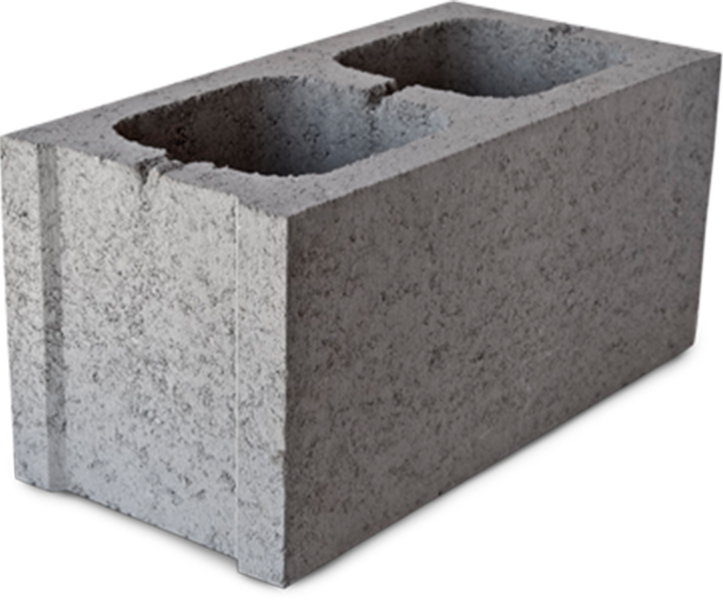Why Masonry
ACHIEVE LIMITLESS DESIGN POTENTIAL HUNDREDS OF OPTIONS. MINIMAL UPKEEP. BUILT-IN BEAUTY.
HUNDREDS OF OPTIONS. MINIMAL UPKEEP. BUILT-IN BEAUTY.
Made from cement, aggregates, and water, concrete masonry units (CMUs) are a versatile and durable building material that are easy to install. Matched with the many other benefits of masonry, including outstanding performance and easy maintenance, Echelon Masonry helps you create gorgeous structures that will stand strong for years to come.
UNMATCHED PERFORMANCE AND VERSATILE BEAUTY
The strength of concrete matched with the design versatility of stunning architectural choices make CMUs the premium choice for strong, beautiful buildings.
LOW MAINTENANCE: Masonry offers beauty that lasts while requiring significantly less upkeep than other building materials.
ACOUSTICALLY SOUND: Walls built with masonry benefit from natural insulation to offer exceptional sound control, even at hard to control frequencies. Enhance your building’s acoustics with our Acousta-Wal System, which controls sound transmission on all frequencies.
LEED FRIENDLY: Earn LEED credits with masonry. On average, CMUs save 3-5% in reduced greenhouse gas emissions compared to wood. Plus, natural insulation can contribute to lower heating and cooling costs. Increase energy efficiency with our InsulTech System™, which gives the assembled unit an effective R-Value or 16.2 at 75˚F.
DIVERSE DESIGN: Echelon Masonry offers a comprehensive masonry selection that includes more than 693 standard color options. Discover our virtually limitless product offering.
BUILD WITH MASONRY FOR SUPREME STRENGTH
PROVEN PERFORMANCE. LIFETIME VALUE. DESIGNED TO LAST.
Building with concrete masonry units (CMUs) ensures versatility and durability, as CMUs are one of the strongest building materials available. Rely on Echelon Masonry for a virtually maintenance-free structure that lasts a lifetime, minimizes overall lifecycle costs and can increase occupant safety.
DEPENDABLE ALLY AGAINST DESTRUCTION
A durable building material means longevity for your structure. Masonry resists fire, wind, mold, pests, vandalism and water damage—adding to the long-term value of the structure through decreased maintenance costs, structural integrity and favorable insurance policy premiums.
MANAGE MOISTURE: Wood rots, masonry does not. CMUs equipped with RainBloc® Integrated Water Repellant System fight moisture, which is the #1 cause of structural deterioration, while also preventing harmful mold growth, which can lead to poor air quality.
PREVENT PESTS: Exterior walls built with masonry naturally help prevent damage caused by pests such as termites and carpenter ants. These insects feed on wood, not on CMUs.
WEATHERPROOF: Reinforced concrete masonry has a relatively high mass that helps resist the large uplift and overturning forces of tornadoes, hurricanes and other high-wind events.
BUILD SAFE WITH THE STRENGTH OF MASONRY
FLAME RESISTANT. INCREASE SAFETY. NATURAL PROTECTION.
Specifying concrete masonry units (CMUs) for commercial buildings can help keep fires contained and prevent total structural loss. That’s because masonry can withstand extremely high temperatures, which helps keep buildings resilient and occupants safe.
BE STRONGER UNDER FIRE
PREVENT TOTAL STRUCTURAL LOSS WITH NATURAL PROTECTION
When comparing concrete masonry to wood or other materials, there is a clear safety advantage: masonry resists flames longer than other building materials. Specifying a fire-resistant building material matters because fire is a real issue in commercial construction. Ask yourself, does your structure stand up to the heat? If it’s built with anything but CMUs, your building may be at risk for increased damage, flame spread or total loss.
In 2015 in the U.S., there were more than half a million structure fires resulting in $10.3B in property damage.***
DOWNLOAD PDF TO SHARE THESE FACTS
Swipe Left to Right Below to View All Content.

Masonry
Concrete masonry units hold the highest flame spread classification, a Class A. As a result, masonry naturally withstands high temperatures, contains fires and meets codes without additional treatments or measures.†
Masonry can withstand temperatures up to 1,000ºF.§
Concrete keeps fires contained to the room of origin 93% of the time.||
Masonry can withstand direct exposure to fire for up to 4 hours.¶

Wood
Most wood materials hold the lowest flame spread classification, a Class C. Therefore, additional safety measures and chemical treatments are mandatory to ensure wood is up to code and safe for commercial buildings.‡
Wood can withstand temperatures up to 500ºF.§
Heavy timber keeps fires contained to the room of origin 47% of the time.||
Masonry can withstand direct exposure to fire for up to 4 hours.¶
